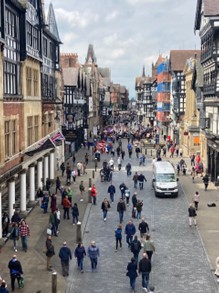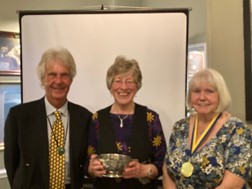Tuesday 10 October, 2023
Reuse, Recycle, Remember! How we used to be environmentally friendly
Long ago, when I was young there was a shortage of everything — and I suspect in particular money, plus after the War there was a shortage of everything so every one had to “make do and mend”.
The wrapping on parcels was carefully removed, any string wrapped up and the paper folded, all ready to be used again. Everything around the house was treated with care. Furniture and fittings were made to last and any spare food (although not a lot in my house as there were five children) was recycled for another meal, and in fact, in our street was a bin which people put spare food, which I always believed was to feed pigs. (although this was never verified) but it seemed a good use of food waste. All this was fine, but for me the most annoying thing was that as the fourth of four daughters most, if not all my clothes were second had — yes I was the original “Second hand Rose”. To make thing worse, the sister immediately older than me was much taller and better looking than me and I always felt that I was invisible. One Christmas, much to my amazement there were two party dresses, one pink and one blue flowers in amongst my gifts. Now I knew that they had never belonged to anyone in the family and I felt very excited about it.
Imagine my shock when I discovered that they had belonged to one of my mother’s friends daughters. No longer did I want to wear them and, in fact, they were used to dress up my dolls. A case of one very unhappy little girl and unsuccessful recycling.
However, one year, my mother did make me a new party dress of blue taffeta with a net overskirt and flowers at the waist — I was thrilled and went off to all the parties very much delighted with myself. I am not sure if this was to make up for the earlier party dresses. Naturally my brother, being a boy, never had any second hand clothes, but then I don’t think that this was important to him, being a boy. In any event, being the “son and heir” he always got the best. Nowadays, I think we have, to some extent, a lot of recycling. This is partly due to the fact that we seem to be in a recession and also because we are so much more aware of the shortages of resource on our planet. I know that clothes do not always wear out and that many people (including myself) still recycle clothes by sending them to the Charity Shops, but I, for one, have never bought anything there. I will just put it down to my earlier life.
Liz Duncan



































































 Topic Leader Ruth
Topic Leader Ruth







